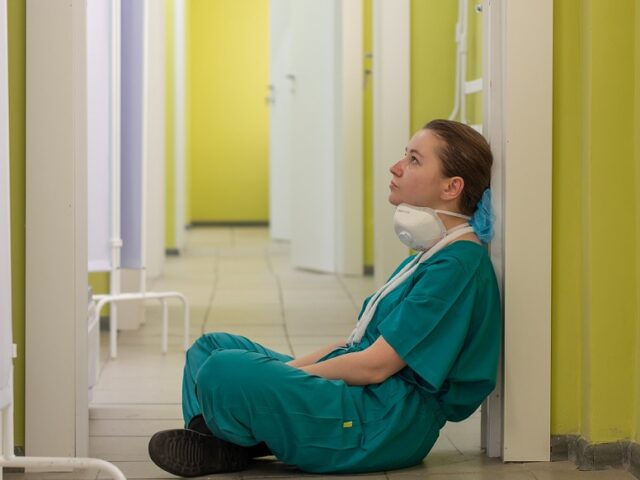
Heroes, but Still Human: PTSD in Nurses
Throughout COVID-19, people have become increasingly aware of the heroes in our midst: front-line healthcare workers, grocery store clerks, truck drivers and other essential workers we take for granted in our everyday lives.
Nurses and other healthcare staff have been in the spotlight as they bravely enter hospitals and care homes every day to care for patients with COVID-19.
But although the pandemic has brought the courage and selflessness of healthcare workers into focus, the reality is that nursing was already one of the most dangerous jobs in Canada.
A 2017 survey of Canadian nurses found that 61% have had serious problems at work with at least one type of workplace violence in the previous 12 months. In Ontario, nurses have some of the highest workplace injury rates across all sectors.
Last year, before COVID-19 hit, the Canadian Federation of Nurses’ Unions commissioned a survey on the stresses nurses experiences. In a report entitled Mental Disorder Symptoms Among Nurses in Canada, findings show that Canadian nurses suffer from mental health issues at a higher rate that the general public, with 23 per cent screening positive for Posttraumatic Stress Disorder (PTSD).
The research is important because in the past, PTSD research and awareness “has been mainly on traditionally male-dominated professions such as the military and police.”
Know Your Rights
An important development for nurses in Ontario was the recognition that they are exposed to a higher level of traumatic stressors than the general population. As such, they are more vulnerable to developing PTSD.
In 2018, the Workplace Safety and Insurance Act was amended to include nurses in the list of first responders and other designated workers for whom a PTSD diagnosis is “presumed to have arisen out of and in the course of his or her employment, unless the contrary is shown.” (WSIB Policy 15-03-13)
Because of this presumption, nurses can get faster access to benefits, resources and treatment.
You can learn more about different types of WSIB mental health injury claims in our previous posts on chronic mental stress claims and traumatic mental stress claims.
Know You’re Not Alone
Earlier this month, the Ontario Nurses Association Local 8 released a short film about PTSD in nursing called “No Room to Grieve”.
ONA Local 8 Coordinator Susan Sommerdyk, RN, says the film “shows the lasting impact of chronic workplace trauma – and reminds nurses and health-care providers that help is available.” She wants nurses and healthcare workers to know that they’re not alone and that their sacrifices are not going unnoticed.
Know What Help is Available
If you’re a nurse and other first responder and are experiencing symptoms of PTSD or other mental health issues, please know that help is available. Your doctor and your union can help connect you with programs or services. There are also many peer support groups where you can connect with others who know what you’re going through.
Wings of Change – Peer Support helps a huge variety of “community heroes” such as healthcare professionals, paramedics, firefighters and many others, whether currently working, retired or volunteers. Boots on the Ground offers peer support services to retired and serving police officers, firefighters, EMS and corrections officers (along with civilian members of those organizations) across Ontario.
If you are having difficulty with a WSIB claim for PTSD or any other workplace injury, Van Dyke Law can help. Contact us today to get started.
